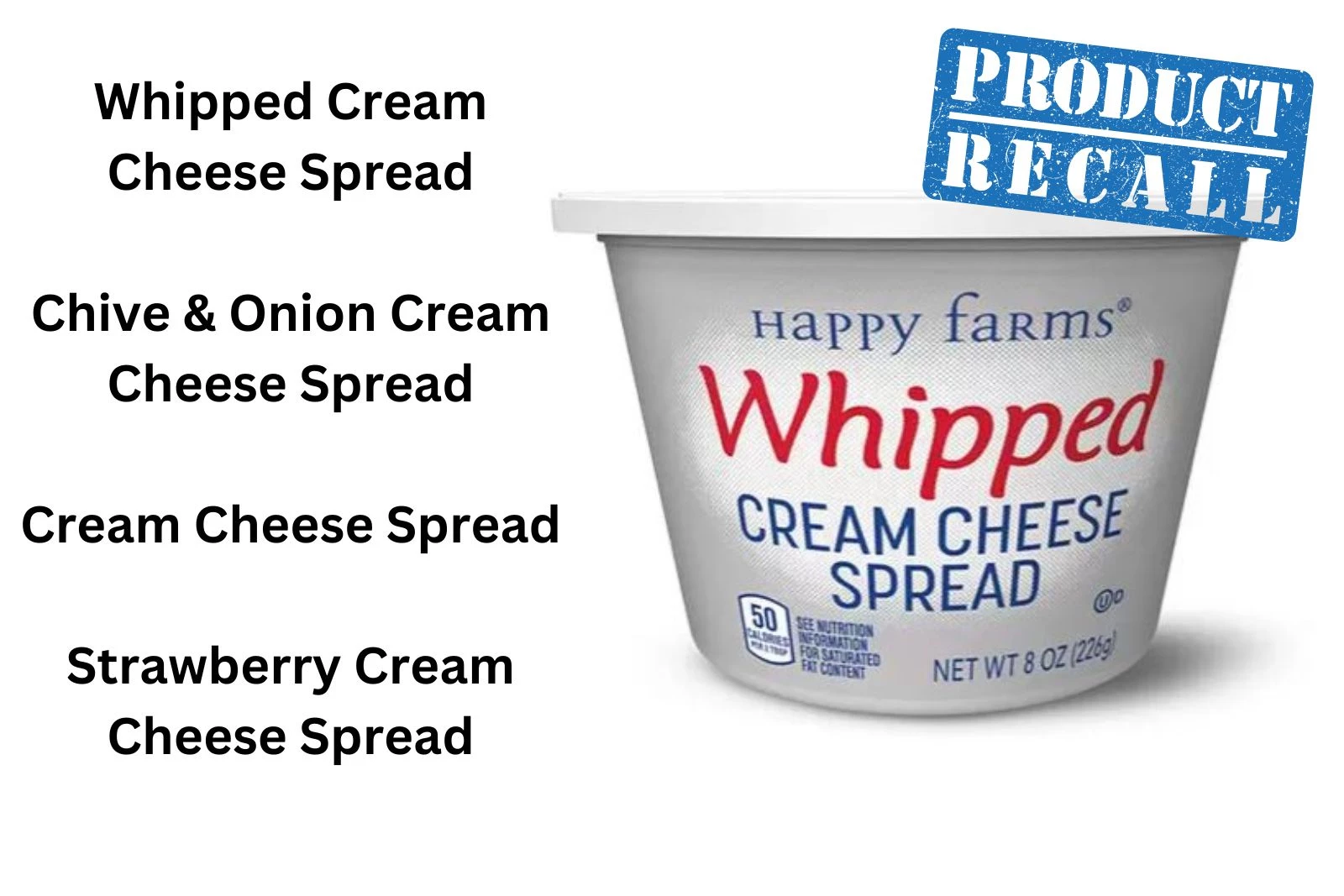Hey there, cheese lovers! If you're an Aldi shopper or someone who's been keeping up with food safety news lately, you might have heard about the Aldi cheese recall. This isn't just another grocery store update—it's something that could affect your health and your trust in the products you buy. Let’s dive right into it and break down what’s happening.
Now, before we get too deep into the details, let me tell you why this recall is a big deal. Cheese isn't just a snack for most people; it's a staple in many households. Whether you're making a grilled cheese sandwich or topping your pasta with grated goodness, cheese plays a huge role in our diets. So when a major brand like Aldi issues a recall, it raises some serious questions about food safety and quality control.
This article isn't just about scaring you away from your favorite snacks. It's about empowering you with the knowledge you need to make informed decisions. By the end of this, you'll know exactly what's going on with the Aldi cheese recall, why it happened, and what steps you can take to protect yourself and your family. Let's get started!
Read also:Unraveling The Mystery Of King Von Autopsy Released
Table of Contents
- What is the Aldi Cheese Recall?
- Why Did This Recall Happen?
- Which Aldi Cheese Products Are Affected?
- Food Safety Concerns Surrounding the Recall
- Aldi's Response to the Recall
- What Should Consumers Do?
- Long-Term Impacts on Aldi's Reputation
- Exploring Alternatives to Aldi Cheese
- Lessons Learned from the Aldi Cheese Recall
- Final Thoughts and Next Steps
What is the Aldi Cheese Recall?
So, what exactly is going on here? The Aldi cheese recall refers to a recent announcement by the popular discount grocery chain that certain cheese products sold under their private label may pose health risks. These products were pulled from shelves due to potential contamination issues. Yep, you read that right—your favorite Aldi cheese might not be as safe as you thought.
The recall covers a range of cheese products, including shredded, sliced, and block varieties. While the exact cause of the contamination is still under investigation, the company took swift action to ensure customer safety. But why did this happen in the first place? Let's explore that next.
Why Did This Recall Happen?
Potential Causes Behind the Recall
Recalls like this don't just happen overnight. There are usually underlying causes that lead to such incidents. In the case of the Aldi cheese recall, several factors could be at play:
- Contamination during production: Sometimes, bacteria like Listeria or Salmonella can sneak into the production process, contaminating the final product.
- Improper storage conditions: Cheese needs to be stored at specific temperatures to prevent spoilage. If these conditions aren't met, it can lead to contamination.
- Supply chain issues: With global supply chains being as complex as they are, there's always a risk of something going wrong along the way.
While no one wants to think about their cheese being unsafe, it's important to understand that recalls are a necessary part of maintaining food safety standards.
Which Aldi Cheese Products Are Affected?
A Closer Look at the Impacted Products
Not all Aldi cheese products are part of this recall. To help you identify which ones to avoid, here's a list of the affected items:
- Aldi Shredded Mozzarella
- Aldi Sliced Cheddar
- Aldi Block Parmesan
- Aldi Shredded Colby-Jack
If you have any of these products in your fridge or pantry, it's best to return them to the store or discard them immediately. Trust me, your health is worth more than a few bucks saved on cheese.
Read also:Who Is Jennifer Aniston Currently Dating A Comprehensive Look At Her Love Life
Food Safety Concerns Surrounding the Recall
Food safety is a top priority for any grocery chain, and Aldi is no exception. However, this recall raises some serious concerns about how food safety protocols are being implemented. Are they rigorous enough? Are they consistently followed across all production facilities?
According to the Centers for Disease Control and Prevention (CDC), foodborne illnesses affect millions of people each year in the United States alone. This recall serves as a reminder that even the most trusted brands aren't immune to these kinds of issues.
Aldi's Response to the Recall
How Aldi is Handling the Situation
Credit where credit is due—Aldi has been proactive in addressing the recall. They've issued clear instructions for customers, provided refunds for returned products, and are working closely with health authorities to investigate the issue further.
In a statement, Aldi representatives emphasized their commitment to customer safety and promised to take all necessary steps to prevent similar incidents in the future. It's good to see a company stepping up and taking responsibility, but only time will tell if their actions match their words.
What Should Consumers Do?
If you're an Aldi shopper, here's what you need to do:
- Check your pantry and fridge for the recalled cheese products.
- Return any affected items to your local Aldi store for a full refund.
- Monitor yourself and your family for symptoms of foodborne illness, such as nausea, vomiting, or diarrhea.
And remember, prevention is key. Always practice safe food handling practices at home, and don't hesitate to reach out to Aldi customer service if you have any questions or concerns.
Long-Term Impacts on Aldi's Reputation
Recalls like this can have lasting effects on a company's reputation. While Aldi has a reputation for offering high-quality products at affordable prices, incidents like this can erode consumer trust. It's up to the company to rebuild that trust through transparency, accountability, and improved safety measures.
Some experts suggest that Aldi may need to invest more in quality control and supply chain management to prevent future recalls. Only time will tell if they'll rise to the challenge.
Exploring Alternatives to Aldi Cheese
Don't worry, cheese lovers—you still have plenty of options. If you're looking for alternatives to Aldi cheese, consider checking out other grocery chains or local producers. Brands like Kraft, Sargento, and Horizon Organic offer a wide range of cheese products that are widely available and trusted by consumers.
And if you're feeling adventurous, why not try making your own cheese at home? There are tons of resources online that can guide you through the process. Who knows, you might discover a new hobby!
Lessons Learned from the Aldi Cheese Recall
Every crisis is an opportunity to learn, and the Aldi cheese recall is no exception. Here are a few key takeaways:
- Food safety should never be compromised.
- Companies must prioritize transparency and accountability in their operations.
- Consumers have the power to demand better standards from the brands they support.
By learning from this incident, we can all work towards a safer and more reliable food supply chain.
Final Thoughts and Next Steps
There you have it—a comprehensive look at the Aldi cheese recall and its implications. While it's certainly a wake-up call for both consumers and the food industry, it's also an opportunity to improve and grow. As a consumer, your choices matter. By staying informed and holding companies accountable, you can help drive positive change.
So, what's next? If you found this article helpful, don't forget to share it with your friends and family. And if you have any thoughts or questions about the recall, drop them in the comments below. Together, we can create a safer and more transparent food system for everyone.
Stay safe, stay informed, and keep those cheese cravings in check—for now!


